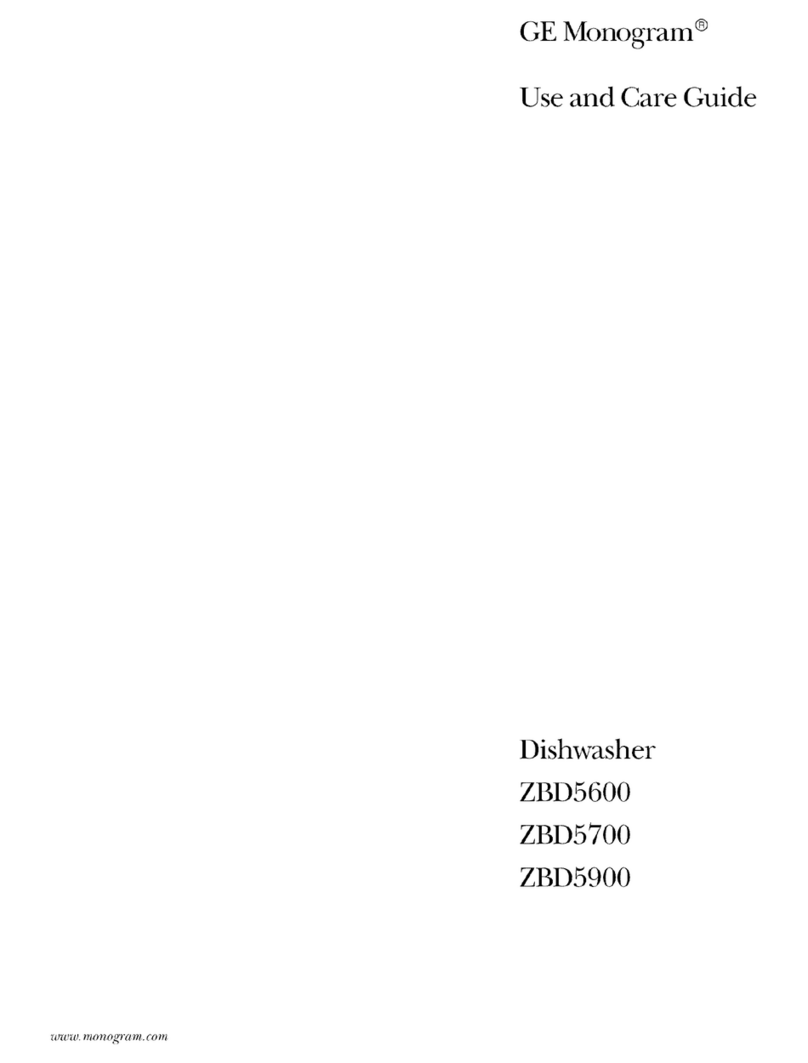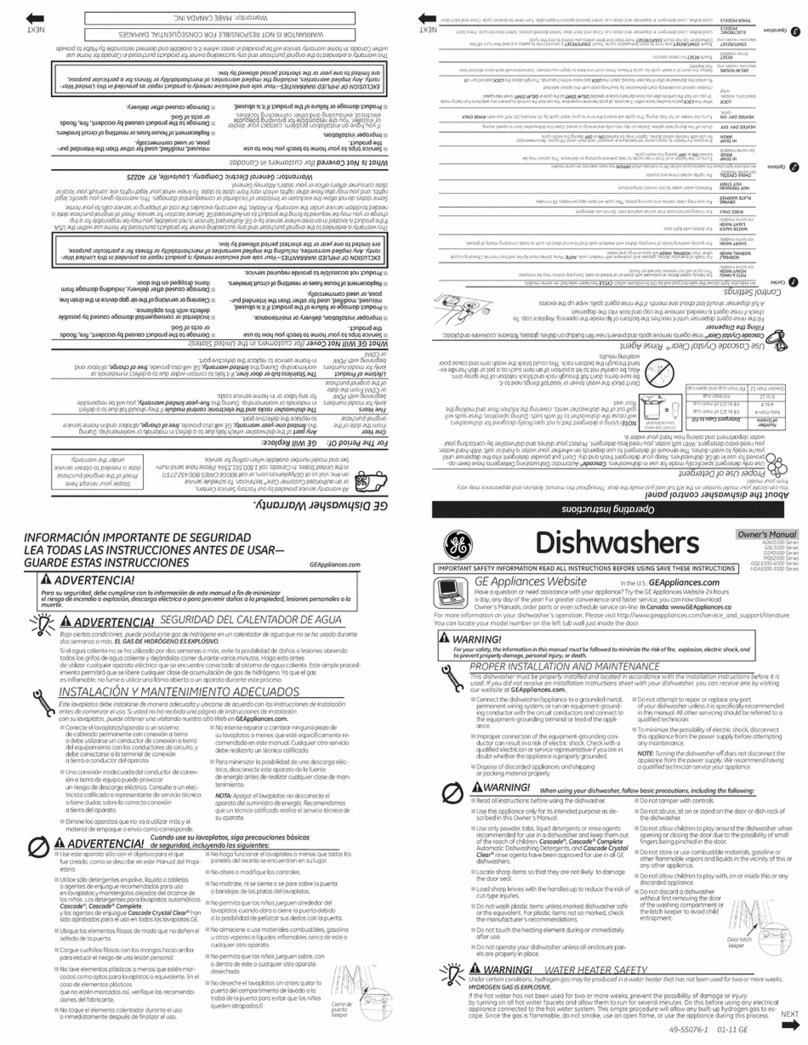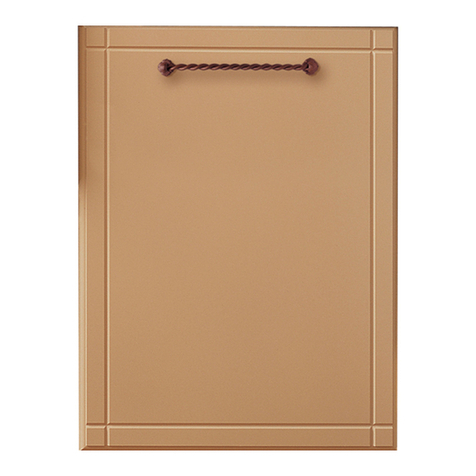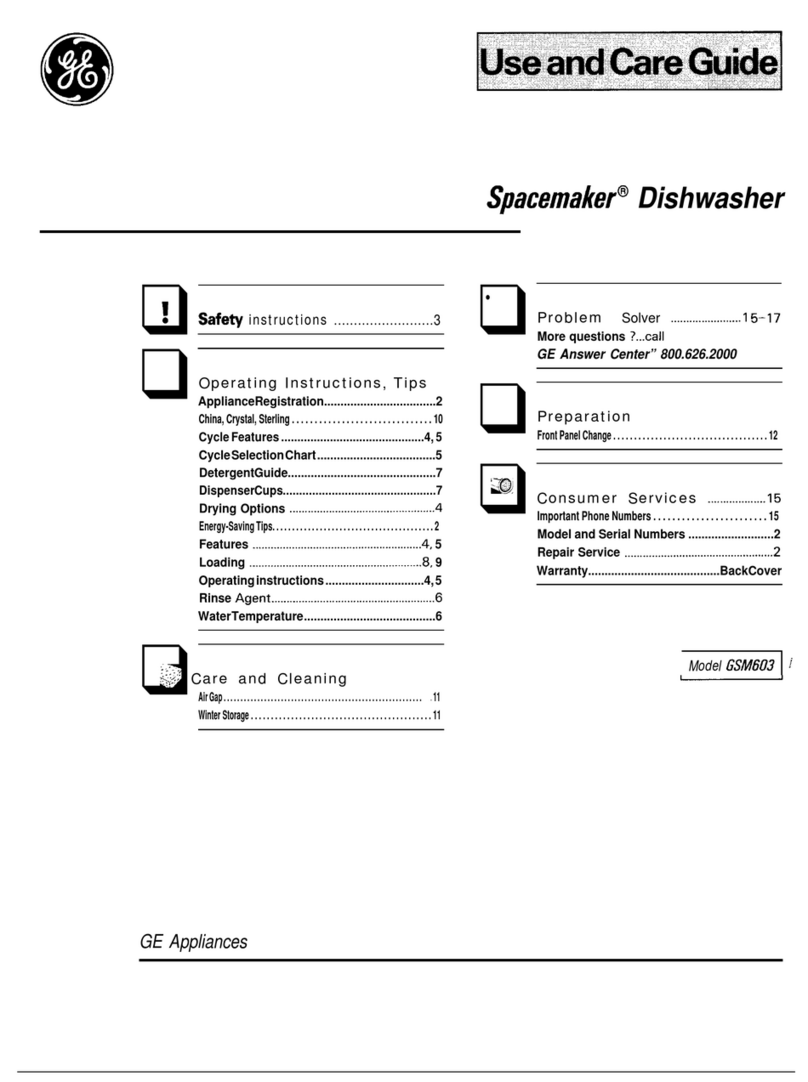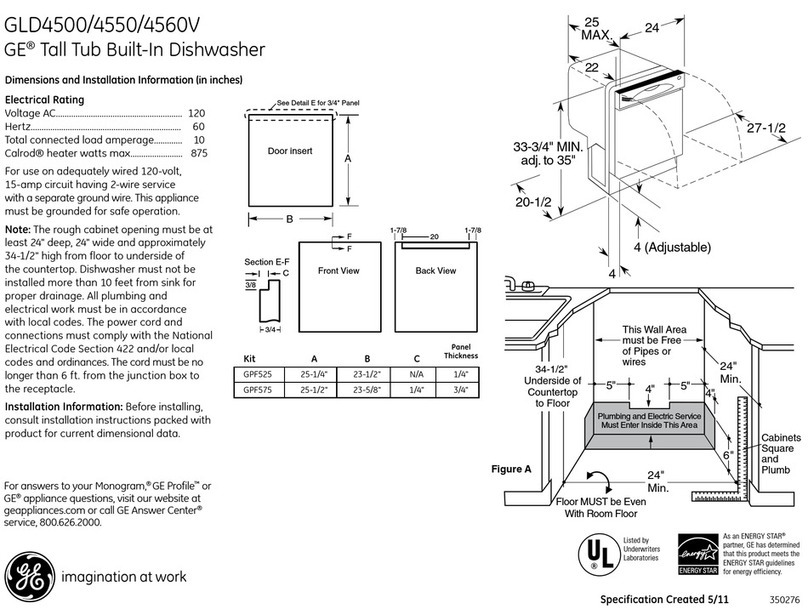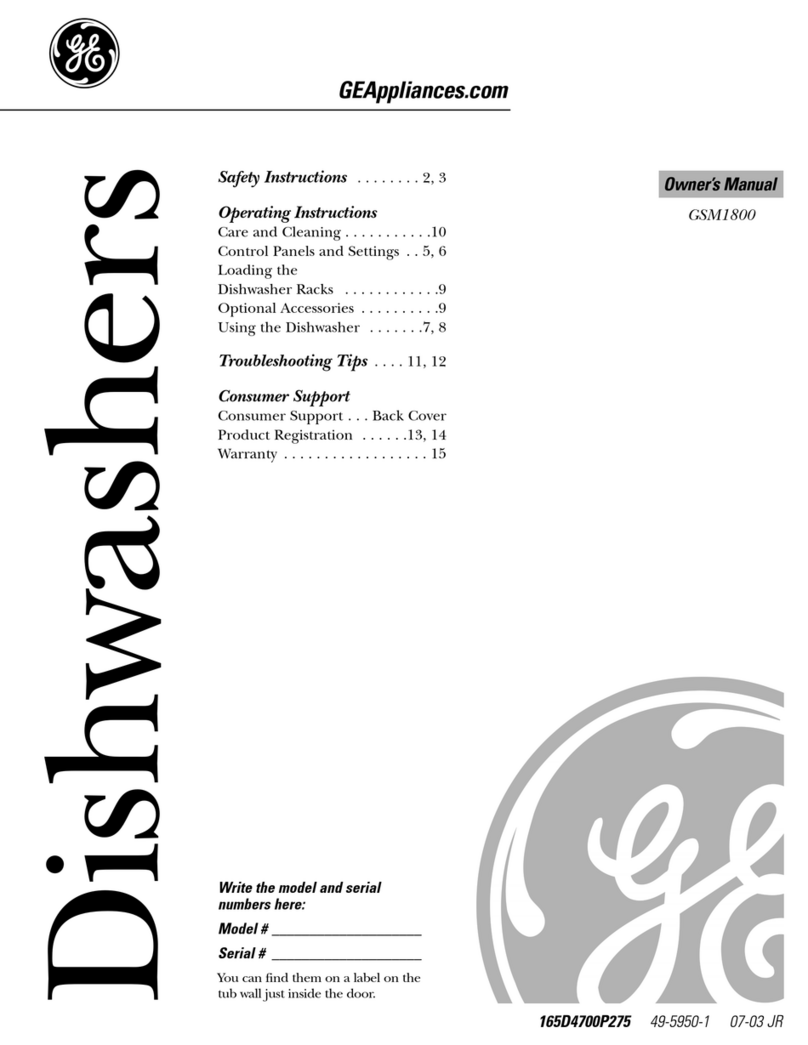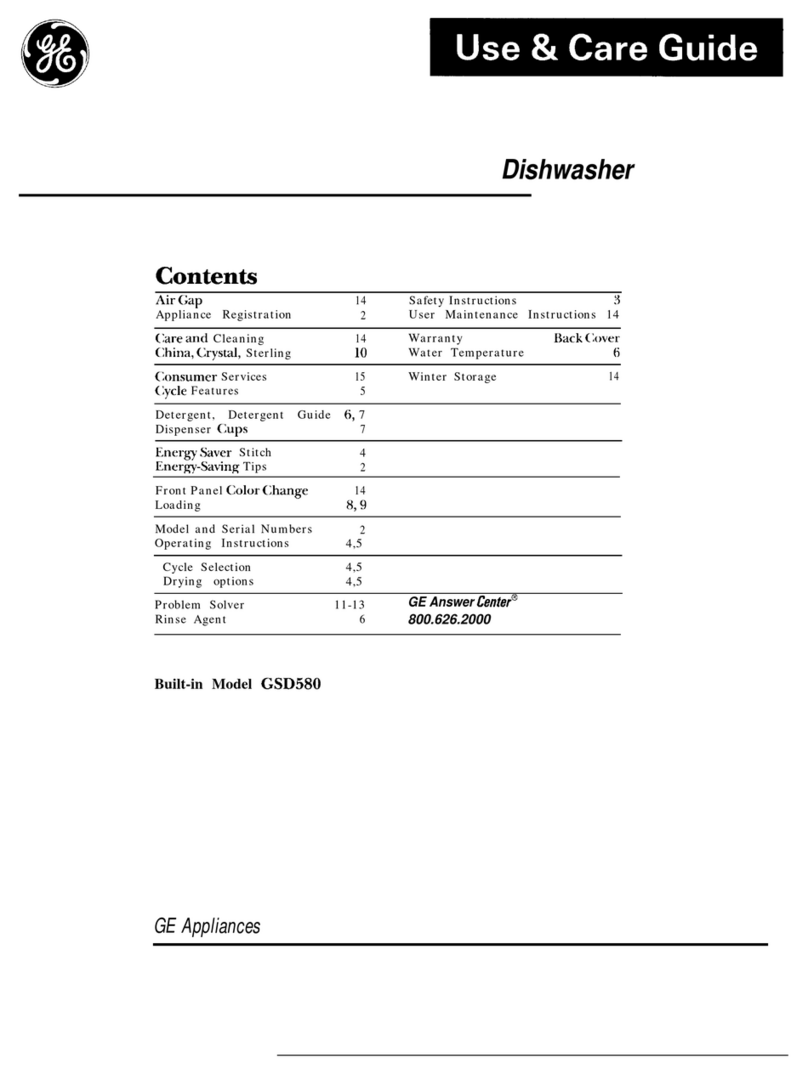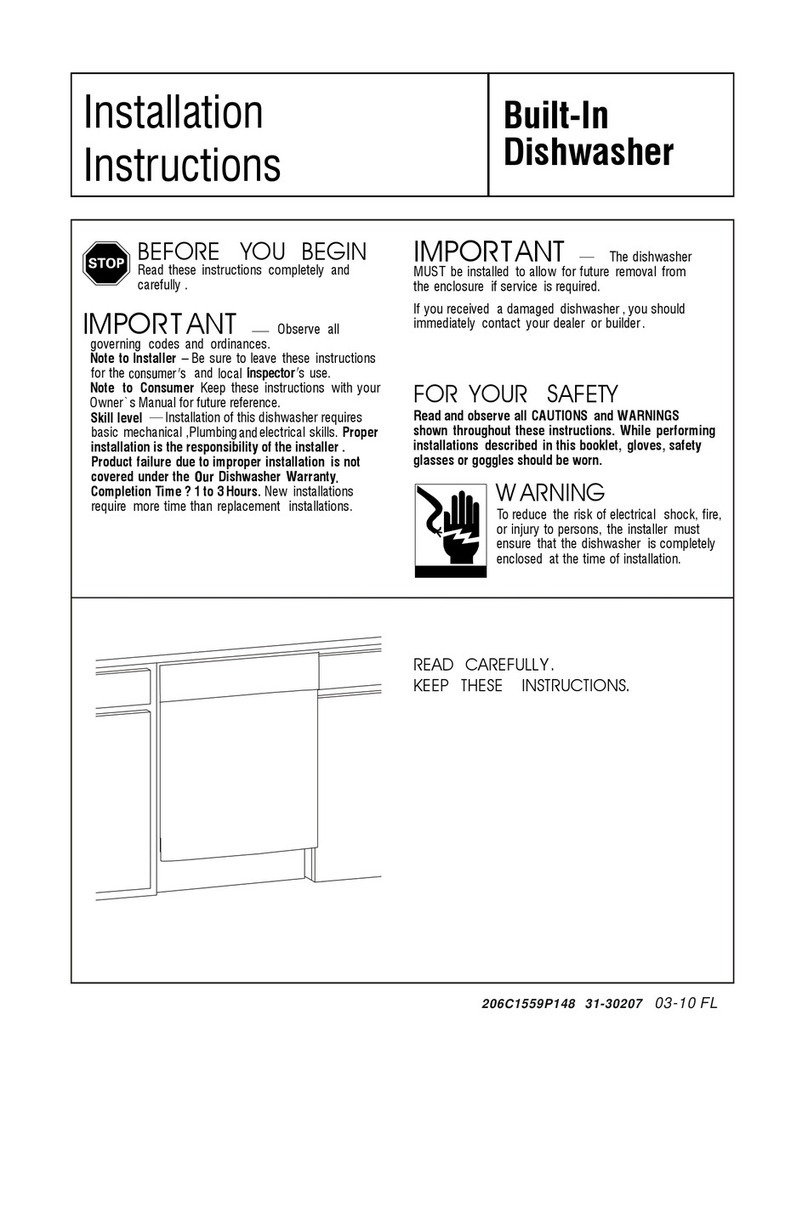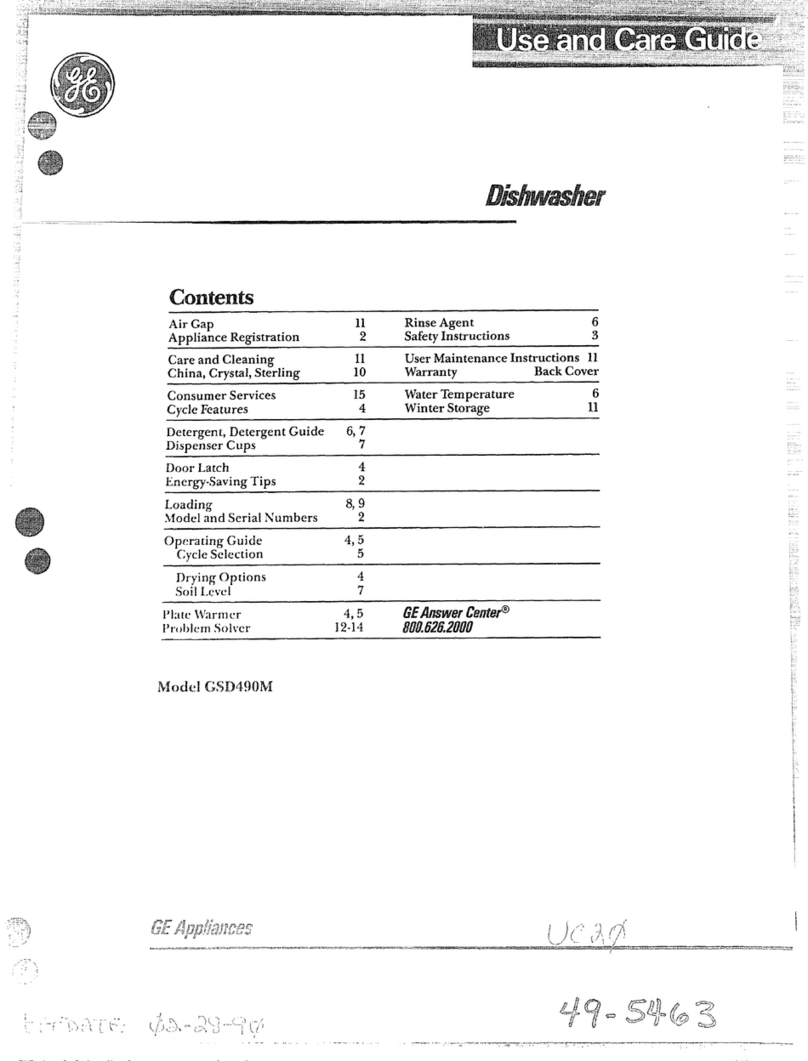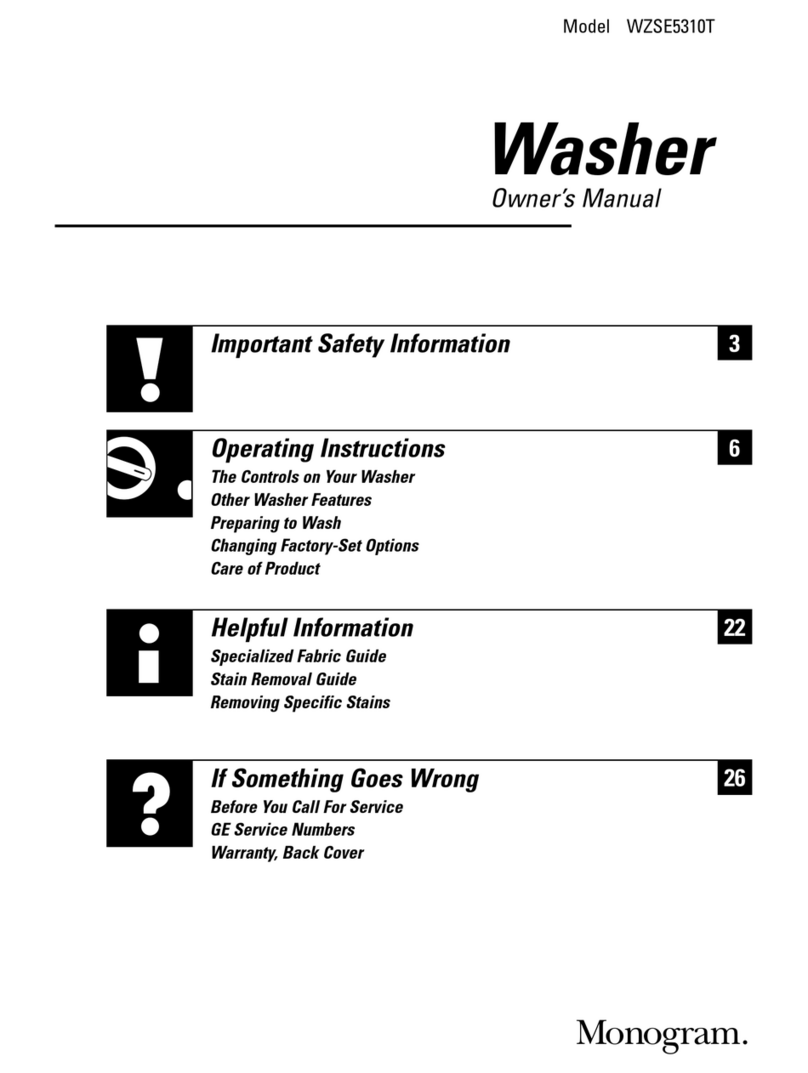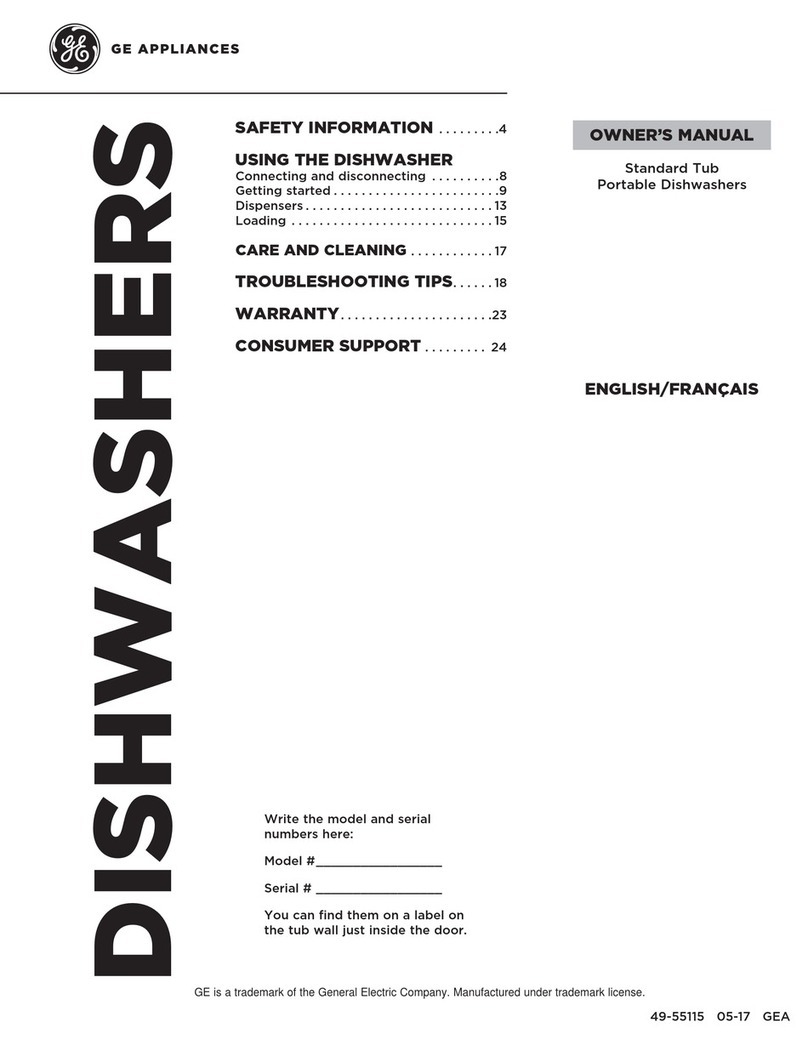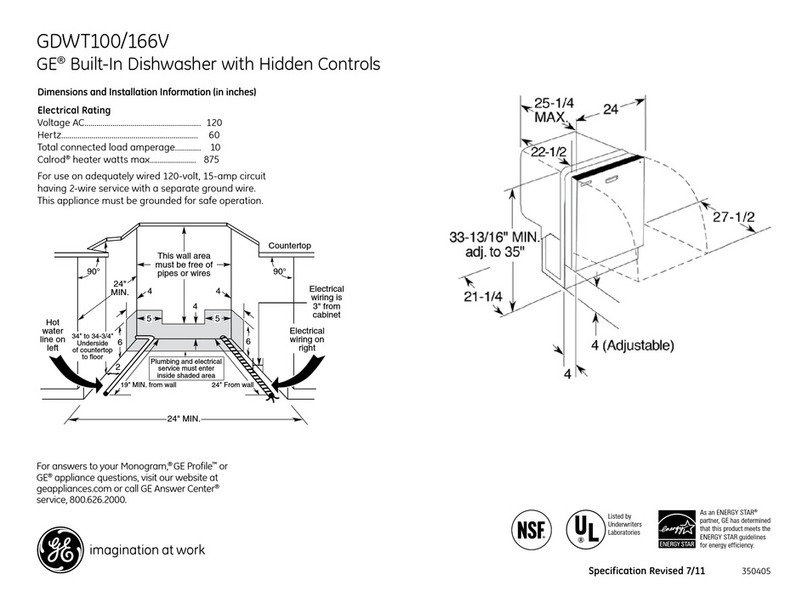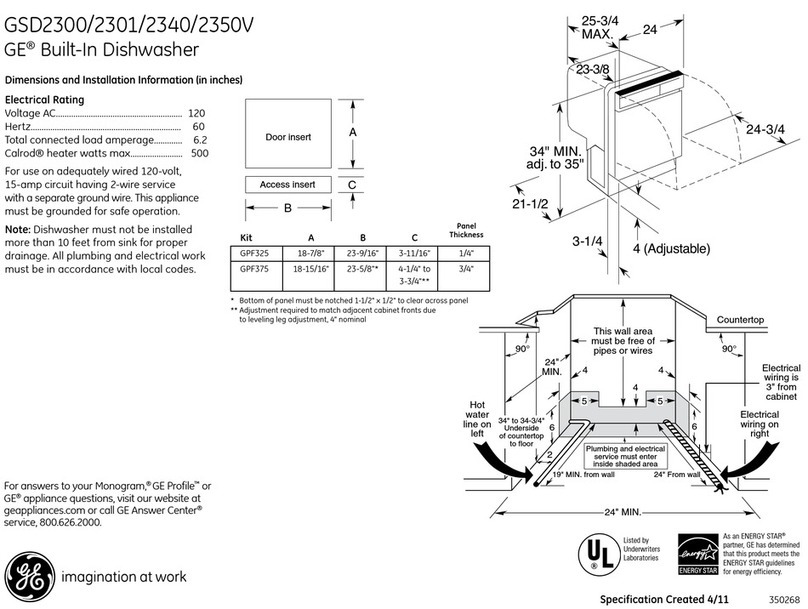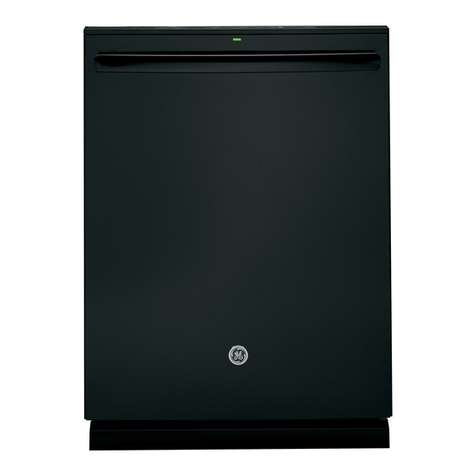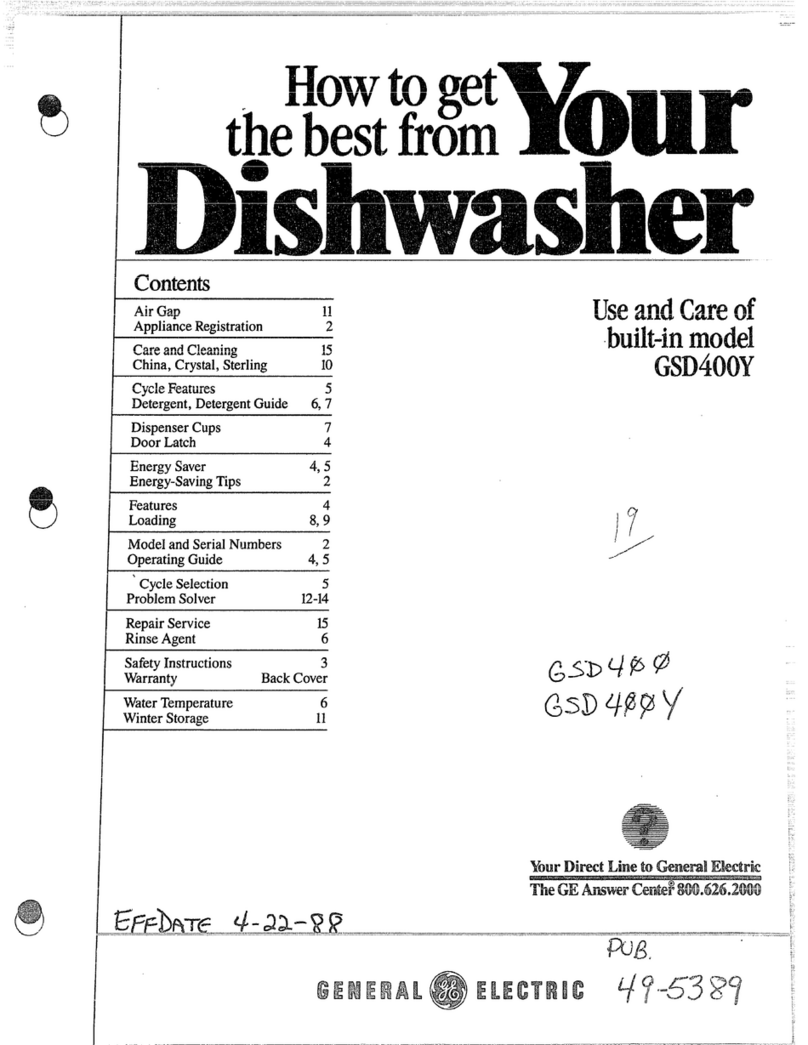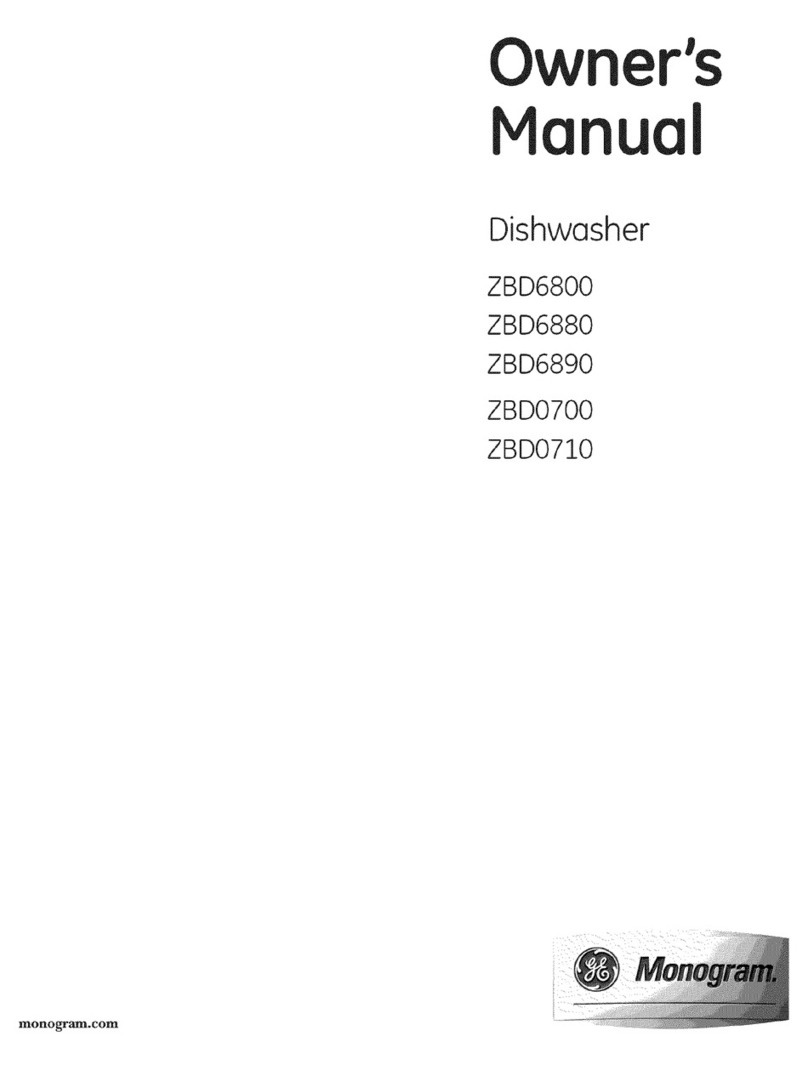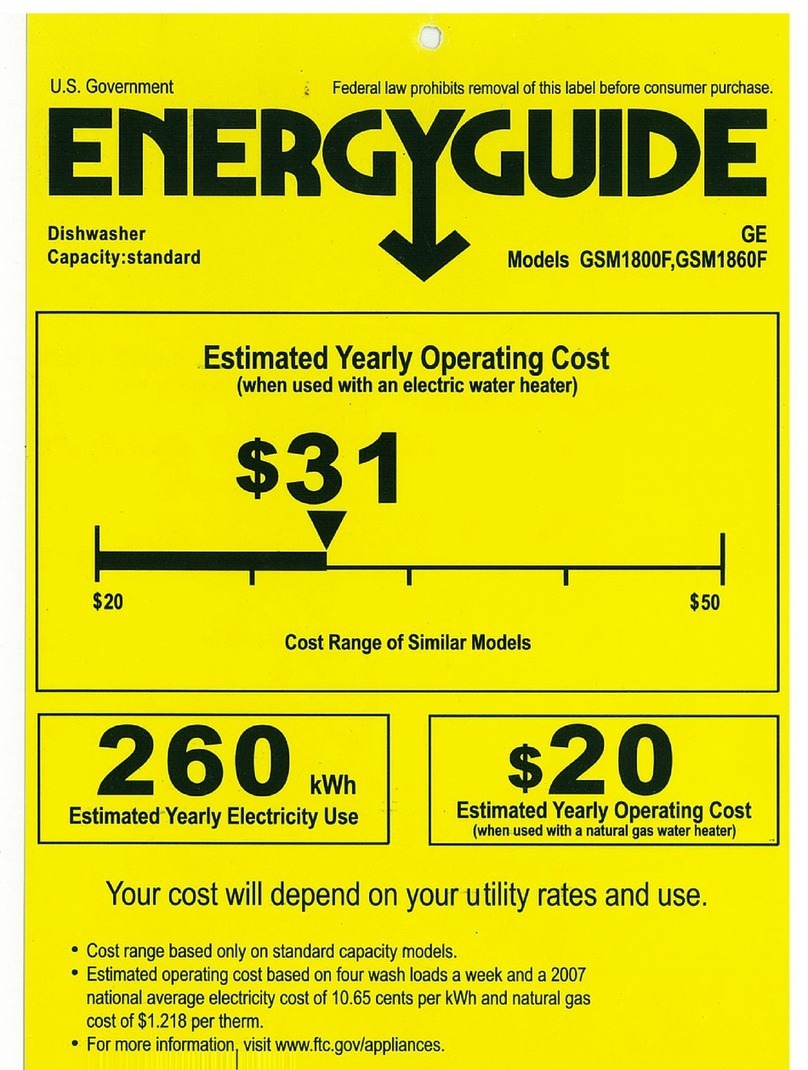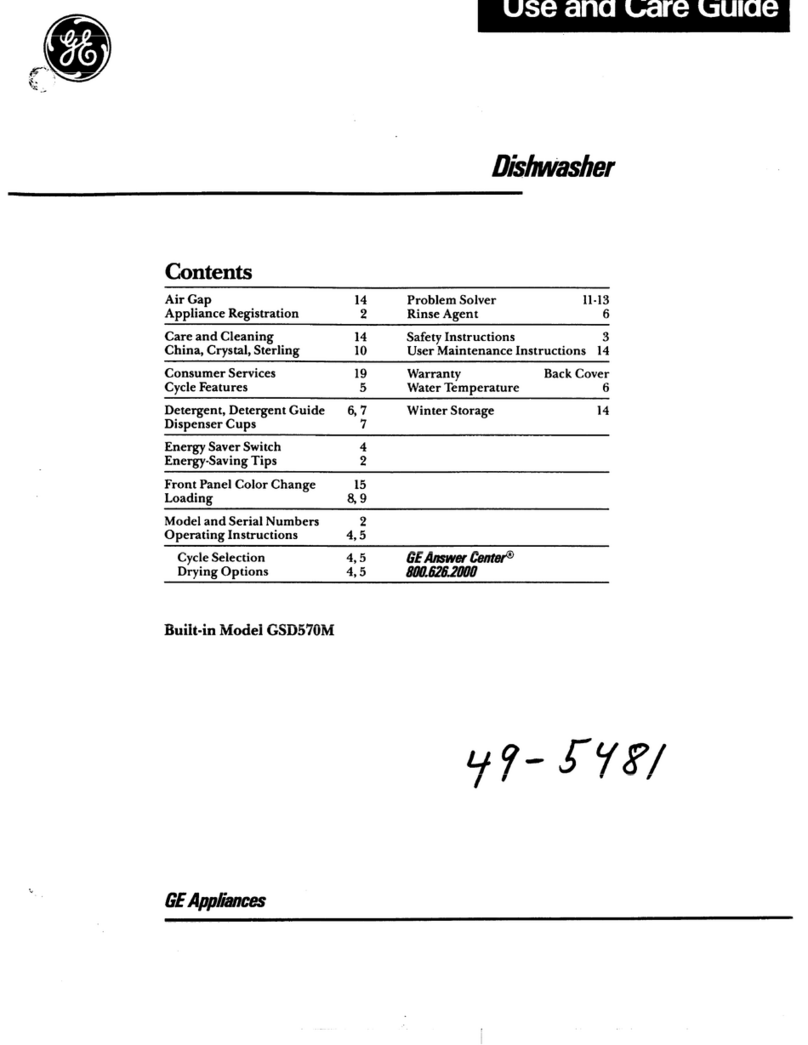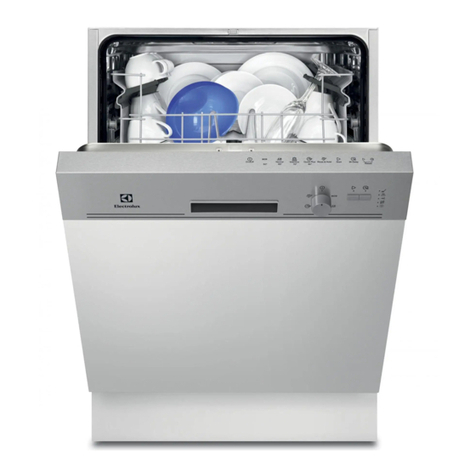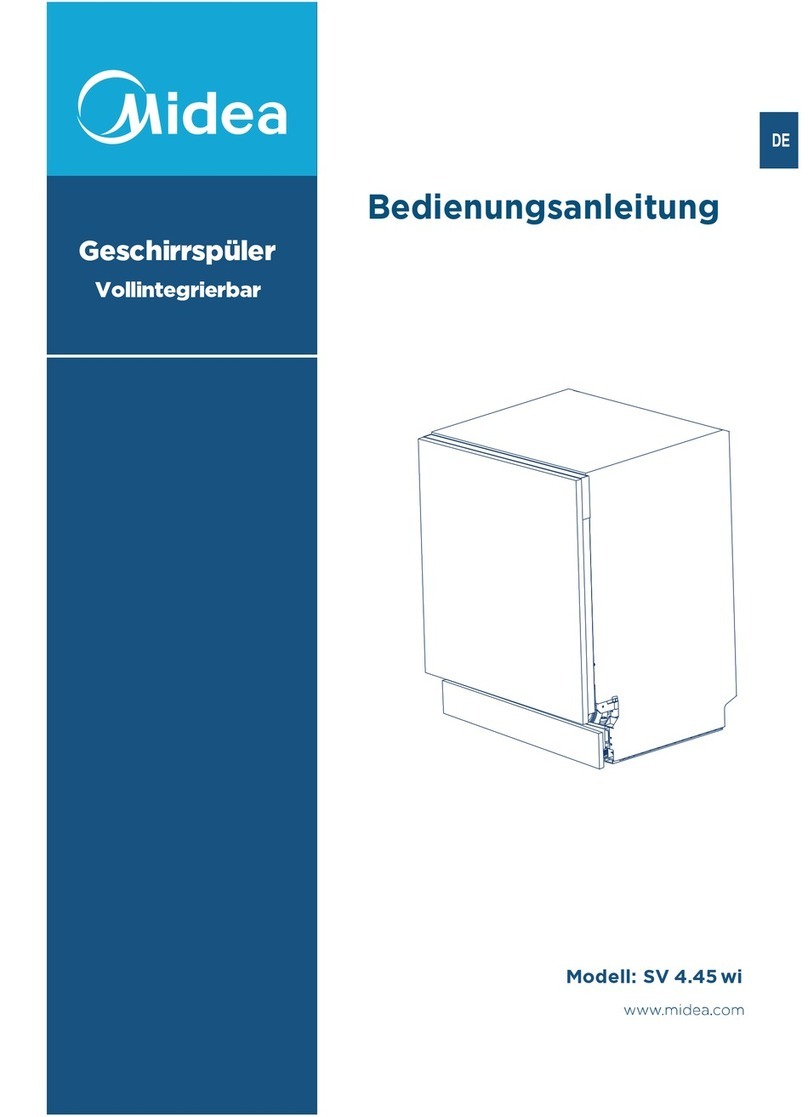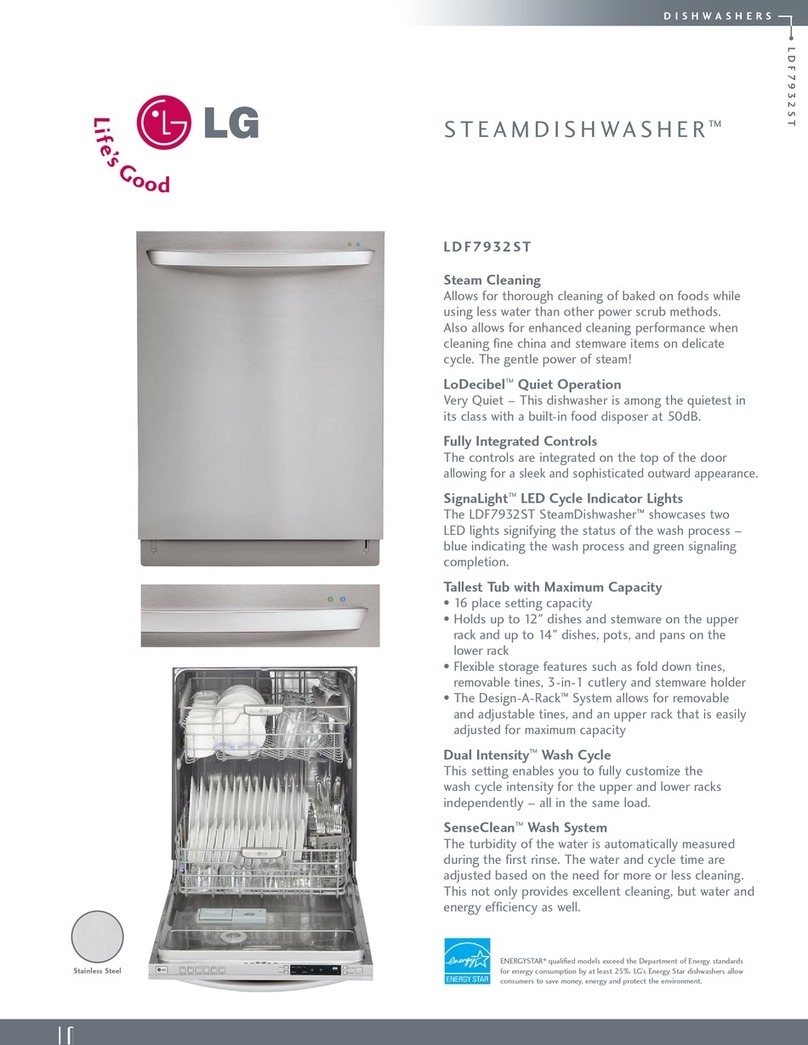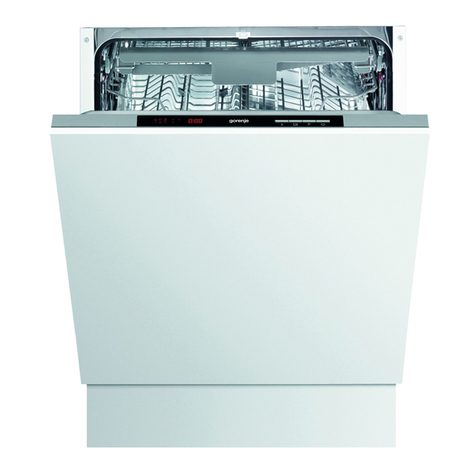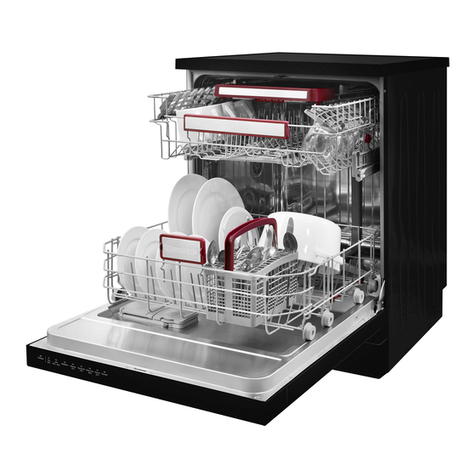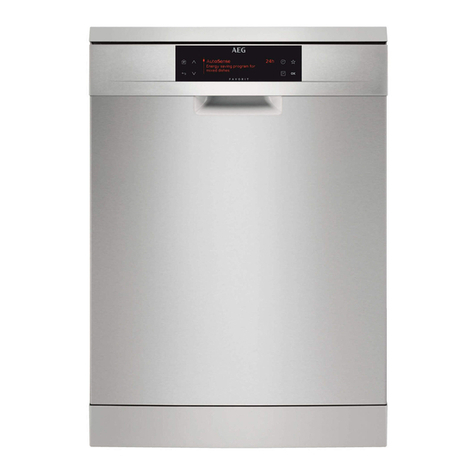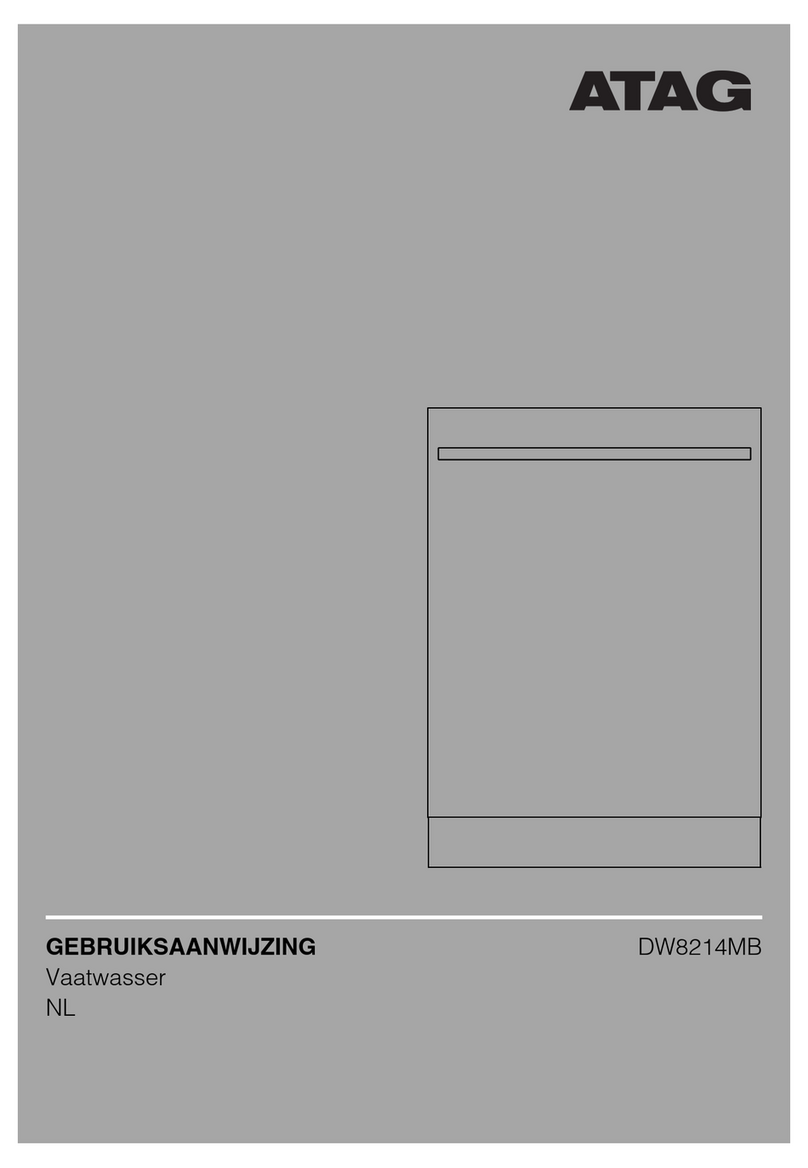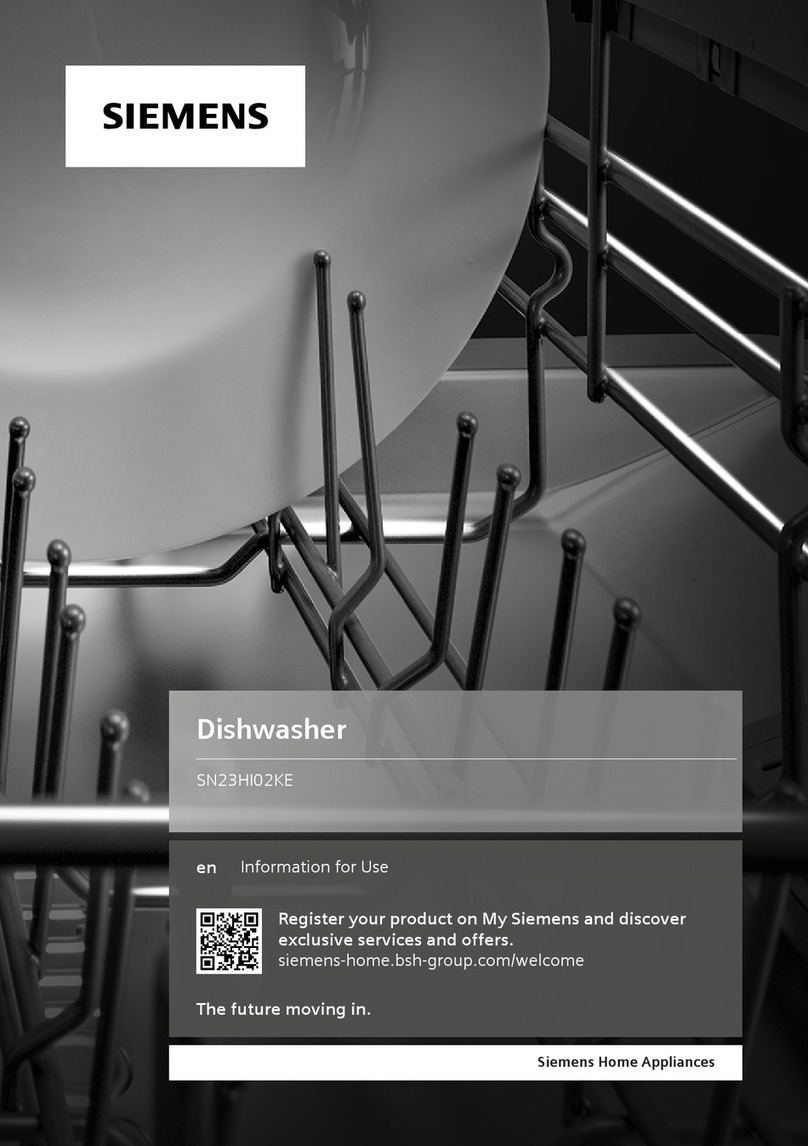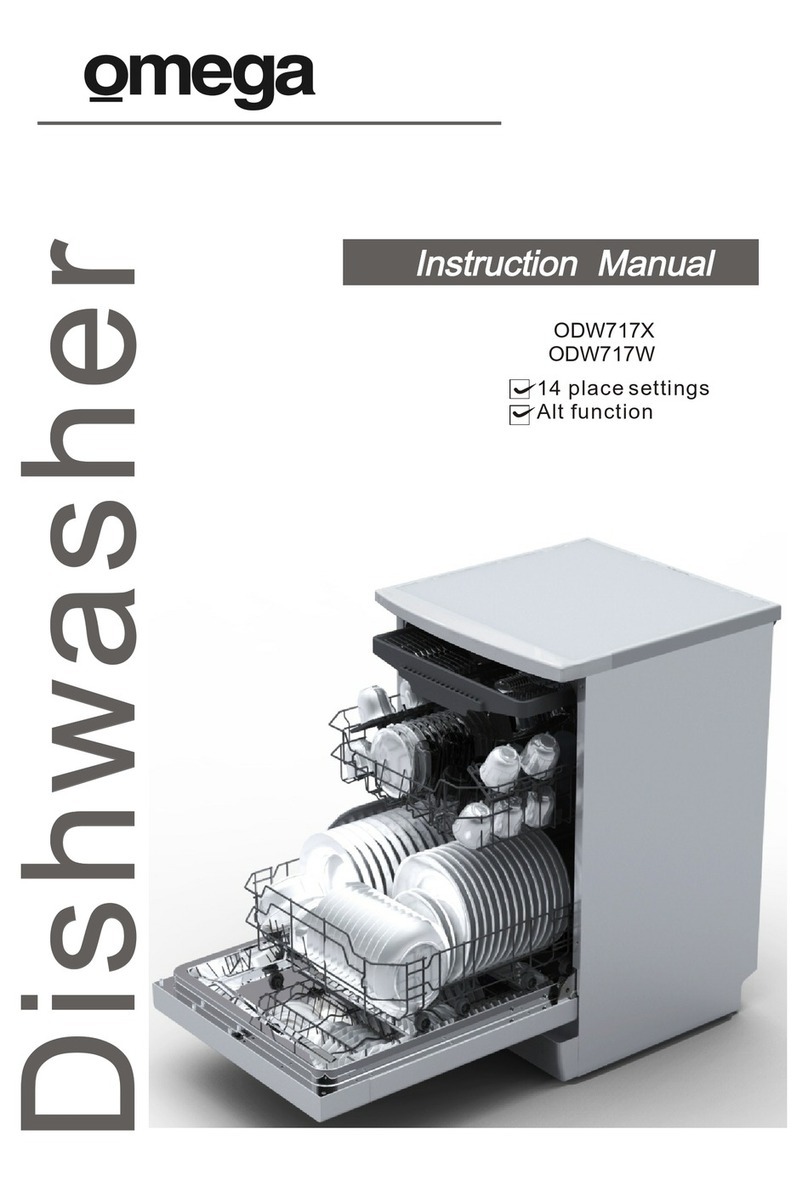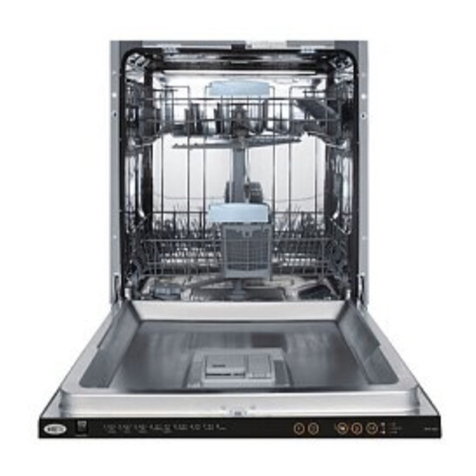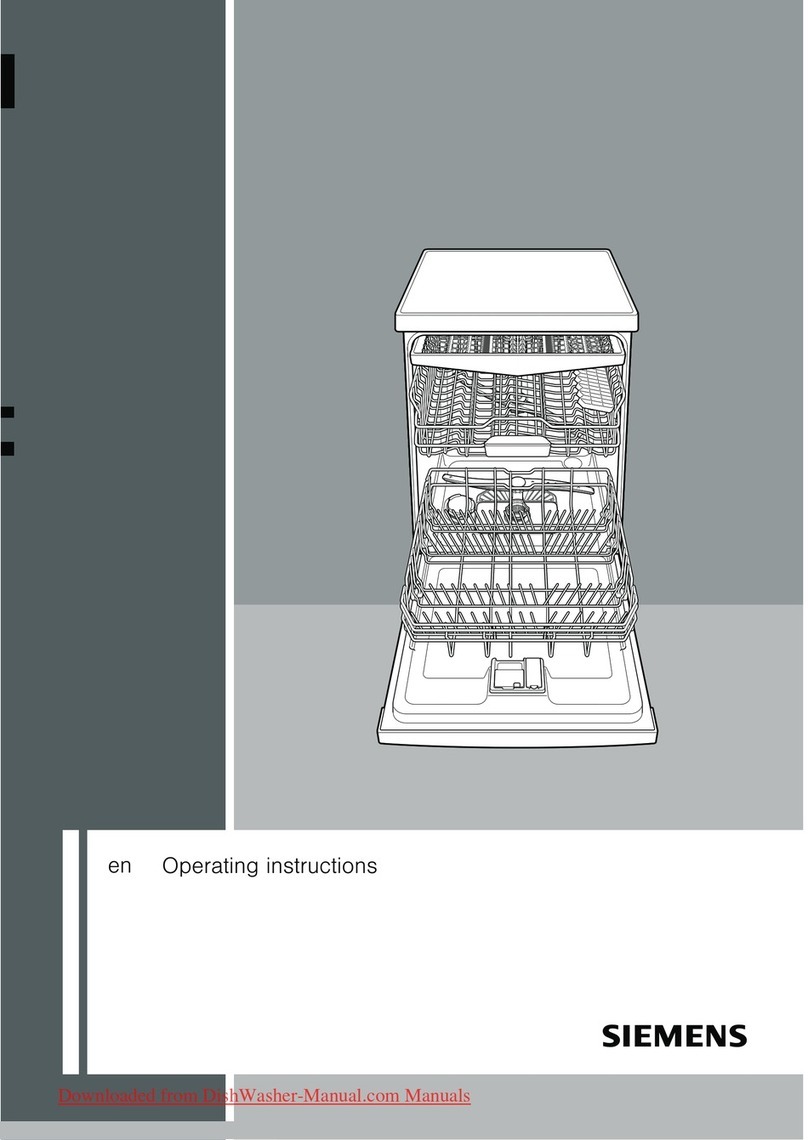Good
dishwashing
starts
with HOT water
To
get
dishes
clean
and dry you
need hot water. To help
you
get
water of the proper temperature,
your dishwasher has a WASH
HEAT BOOST option. When
selected (see Operating section),
this water heating feature allows
you to turn down your household
water heater
and
save energy
if
you’re willing to
let
the dishwasher
run a little longer
while
it heats
water. For good washing and drying,
the entering water must be between
120°F.
and
140°F.
To prevent dish
damage, inlet water
should
not
exceed
1500F.
How to test water temperature:
Higher water temperature is
needed to dissolve grease and
activate powder detergents. lf
the water temperature is less
than 1400
F
., use the WASH
HEAT BOOST option. See
Operating section.
Check your water temperature with
a
candy
or meat thermometer. Turn
on the hot water
faucet
nearest the
dishwasher. Put the thermometer in
a glass and let the water run
continuously into the glass
until
the temperature stops rising. If the
water temperature is below
120°F.,
adjust your water heater.
Helpful hints:
If
outside
temperatures
are
unusually
low, or
if
your water travels a
long distance
from
water heater
to dishwasher, you may need to
set your water heater’s thermostat
up. If you have not used hot
water for some time, the water
in the pipes will be cold. Turn
on the hot water faucet at the
sink and allow it to run until
the water
is
hot. Then start the
dishwasher.
If
you’ve recently
done laundry or run hot water for
showers, give your water heater
time to recover before operating
the dishwasher.
How to use a Rinse Agent
A rinse agent makes water flow
off dishes quicker than usual.
This lessens water spotting
and makes drying faster, too.
For best
dishwashing
performance,
use of a rinse agent such as JET-
DRY brand is recommended.
Rinse agents come in either liquid
or solid form. Your dishwasher’s
dispenser uses the liquid form.
How
to
fill
rinse
1-
1, “1
1’
(VIII*
agent dispenser.
Unscrew the cap.
Note the FULL
v
“?
line on the tip of
‘k
FULL
the cap.
Add
the
liquid rinse agent until it just reaches
the top of the FULL line. Replace the
cap. The dispenser automatically
releases the rinse agent into the final
rinse water.
If you accidentally spill: Wipe up
the rinse agent with a damp cloth.
Don’t leave the spill in the
dishwasher. It can keep your
detergent from working.
If you can’t find any rinse agent,
write:
BENCKISER CONSUMER
PRODUCTS, INC.
(“JET DRY”)
55 Federal Road
P.O.
Box 1991
Danbury, CT 06813-1991
Your dishwasher’s rinse agent
container holds
47z
ounces. This
should last about 3 months. Fill
as needed. Do not overfill.
How to choose and use
detergent
First, use only powder or liquid
detergents specifically made for
use in dishwashers. Other types
will cause
oversudsing.
Second, check the phosphate
content.
Phosphate helps prevent
hard-water materials from forming
spots or film on your dishes. If your
water is hard (7 grains or more),
your detergent has to work harder.
Detergents with a higher phosphate
level will probably work better. If
the phosphate content is low
(8.7Y0
or less), you’ll have to use extra
detergent with hard water.
Your water department can tell
you the hardness of your water.
So
can your county extension
agent or your area’s water softener
company. Just call and ask them
how many “grains of hardness”
there are in your water.
How much detergent should you
use?
That depends. 1s your water
“hard” or “soft”? With hard
water, you need extra detergent to
get dishes clean. With soft water,
you need less detergent.
Too much detergent with soft water
not only wastes money, it can be
harmful. It can cause a permanent
cloudiness of glassware, called
“etching.” An outside layer of
glass is etched away! Of course,
this takes some time. But why take
a chance when it’s easy to find out
the hardness of your water.
Keep your detergent fresh and
dry. Under the sink isn’t a good
place to store detergent. Too much
moisture. Don’t put powder
detergent into the dispenser until
you’re ready to wash dishes, either.
(It won’t be fresh OR dry.)
If your powder detergent gets
old or lumpy, throw it away.
It
won’t wash well. Old detergent
often won’t dissolve.
If you use a liquid dishwasher
detergent, these precautions are not
necessary because liquid
detergents
don’t “lump” as they age or come
in contact with moisture.
6
